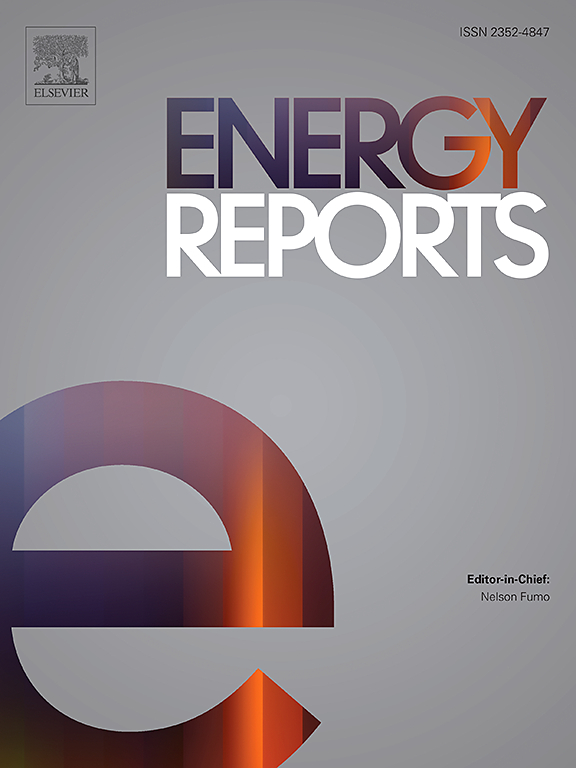住宅独立系统太阳能光伏微电网自适应存储控制的设计与优化
IF 5.1
3区 工程技术
Q2 ENERGY & FUELS
引用次数: 0
摘要
直流微电网对于将太阳能光伏系统整合到离网住宅能源网络中越来越重要。本文提出了一种独立太阳能光伏直流微电网的设计方法,重点关注电池储能系统(BESS)的优化和自适应电源管理。系统架构包括通过扰动和观测算法实现最大功率点跟踪(MPPT)的光伏阵列,用于直流母线电压稳定的双向变流器连接BESS,以及在三种电池工作模式之间转换的控制策略:充电(充电状态,SOC <;高阈值,SOCH),放电(SOC >;低阈值(SOCL)和空闲(SOC >;SOCH)。负载分布分析为小型家庭提供BESS规模,平衡能源可靠性和电池寿命。MATLAB/Simulink仿真和实验验证表明,该系统能够在不同的太阳辐照度和负载条件下保持稳定的直流母线电压,在定义的阈值内调节SOC,并最大限度地减少功率损耗,太阳辐照度、直流电压、SOC和功率曲线都证明了这一点。这项工作为在偏远住宅应用中部署太阳能直流微电网提供了一个实用框架。本文章由计算机程序翻译,如有差异,请以英文原文为准。
Design and optimization of solar photovoltaic microgrids with adaptive storage control for residential standalone systems
Direct Current (DC) microgrids are increasingly vital for integrating solar Photovoltaic (PV) systems into off-grid residential energy networks. This paper proposes a design methodology for standalone solar PV DC microgrids, focusing on Battery Energy Storage System (BESS) optimization and adaptive power management. The system architecture includes PV arrays with Maximum Power Point Tracking (MPPT) via a perturbation and observation algorithm, a bidirectional converter-linked BESS for DC bus voltage stabilization, and control strategies for transitioning between three battery operational modes: charge (State of Charge, SOC < High Threshold, SOCH), discharge (SOC > Low Threshold, SOCL), and idle (SOC > SOCH). A load distribution analysis informs BESS sizing for small households, balancing energy reliability and battery longevity. MATLAB/Simulink simulations and experimental validation demonstrate the system’s ability to maintain stable DC bus voltage, regulate SOC within defined thresholds, and minimize power losses under variable solar irradiance and load conditions, as evidenced by solar irradiance, DC voltage, SOC, and power profiles. This work provides a practical framework for deploying solar-powered DC microgrids in remote residential applications.
求助全文
通过发布文献求助,成功后即可免费获取论文全文。
去求助
来源期刊

Energy Reports
Energy-General Energy
CiteScore
8.20
自引率
13.50%
发文量
2608
审稿时长
38 days
期刊介绍:
Energy Reports is a new online multidisciplinary open access journal which focuses on publishing new research in the area of Energy with a rapid review and publication time. Energy Reports will be open to direct submissions and also to submissions from other Elsevier Energy journals, whose Editors have determined that Energy Reports would be a better fit.
 求助内容:
求助内容: 应助结果提醒方式:
应助结果提醒方式:


